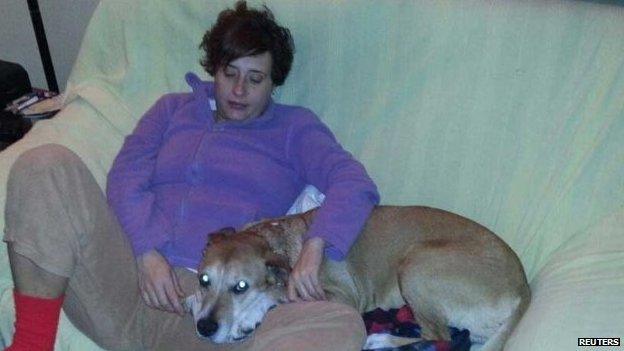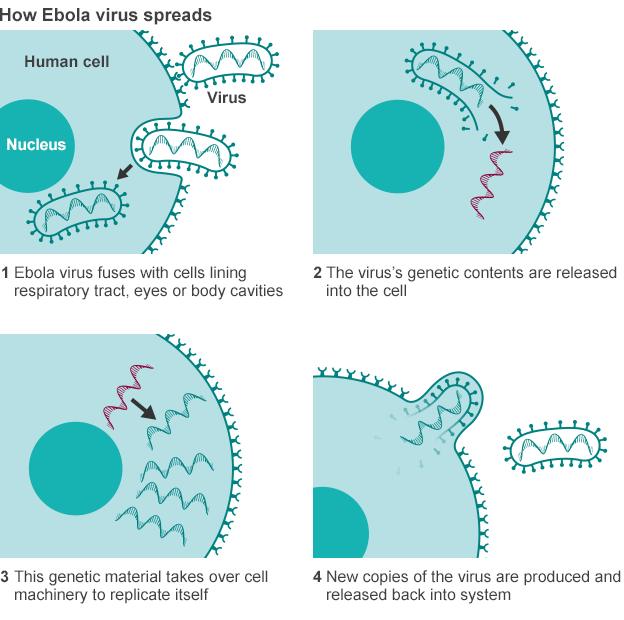Ebola crisis: Spanish nurse tests negative for virus
- Published

Teresa Romero treated two Ebola patients in a hospital in Madrid
The Spanish nurse who became the first person to contract Ebola outside West Africa has now tested negative for the virus, the Spanish government says,
The result suggests Teresa Romero, 44, is no longer infected - although a second test is required before she can be declared free of Ebola.
Ms Romero contracted the virus when treating two infected patients in a Madrid hospital earlier this month.
The Ebola outbreak has killed more than 4,500 people across West Africa.
Ms Romero tested positive for the virus on 6 October, after she treated two missionaries who had been repatriated from West Africa. The missionaries later died from the virus.
Ms Romero has said, external she might have become infected when she removed her protective suit. A doctor in Madrid said she might have touched her face with her gloves after treating one of the missionaries.
Quarantine
Ms Romero has been treated at Carlos III hospital in Madrid, and was reportedly given a human serum containing antibodies from Ebola survivors.
A government statement on Sunday said that a blood test appeared to show that the virus was no longer in her body.
Javier Limon, Teresa Romero's husband: "I am very happy"
She would be given a second test overnight, the statement said, adding that her health was "developing favourably".
Fifteen other people, including Ms Romero's husband, remain under observation in quarantine, but have not shown any symptoms so far, the hospital said.
The incubation period for Ebola can last from two days to three weeks.
Nigeria 'Ebola-free'
Meanwhile, European foreign ministers are due to meet in Luxembourg on Monday to discuss how to strengthen their response to the threat posed by the spread of the Ebola virus.
European nations have committed hundreds of millions pounds to help the West African nations of Liberia, Sierra Leone and Guinea reinforce overstretched healthcare systems and mitigate the damage Ebola is doing to their economies.
But BBC Europe correspondent Damian Grammaticas says there is a growing realisation that there is an urgent need for more medical and military teams to be sent to the region, and for more laboratories and hospital facilities to be built.
Son of Nigeria's hero doctor, who spotted Ebola patient, speaks of pride
He adds that the aim to isolate the virus - not the nations affected.
Meanwhile, the World Health Organisation is expected to declare Nigeria to be officially free of Ebola later on Monday, after six weeks with no reported cases.
A Liberian diplomat brought the virus to the commercial capital Lagos in July but the outbreak was contained, with only 20 known cases and eight deaths.
Senegal has already been declared free of the disease.


Avoid direct contact with sick patients as the virus is spread through contaminated body fluids
Wear goggles to protect eyes
Clothing and clinical waste should be incinerated and any medical equipment that needs to be kept should be decontaminated
People who recover from Ebola should abstain from sex or use condoms for three months
